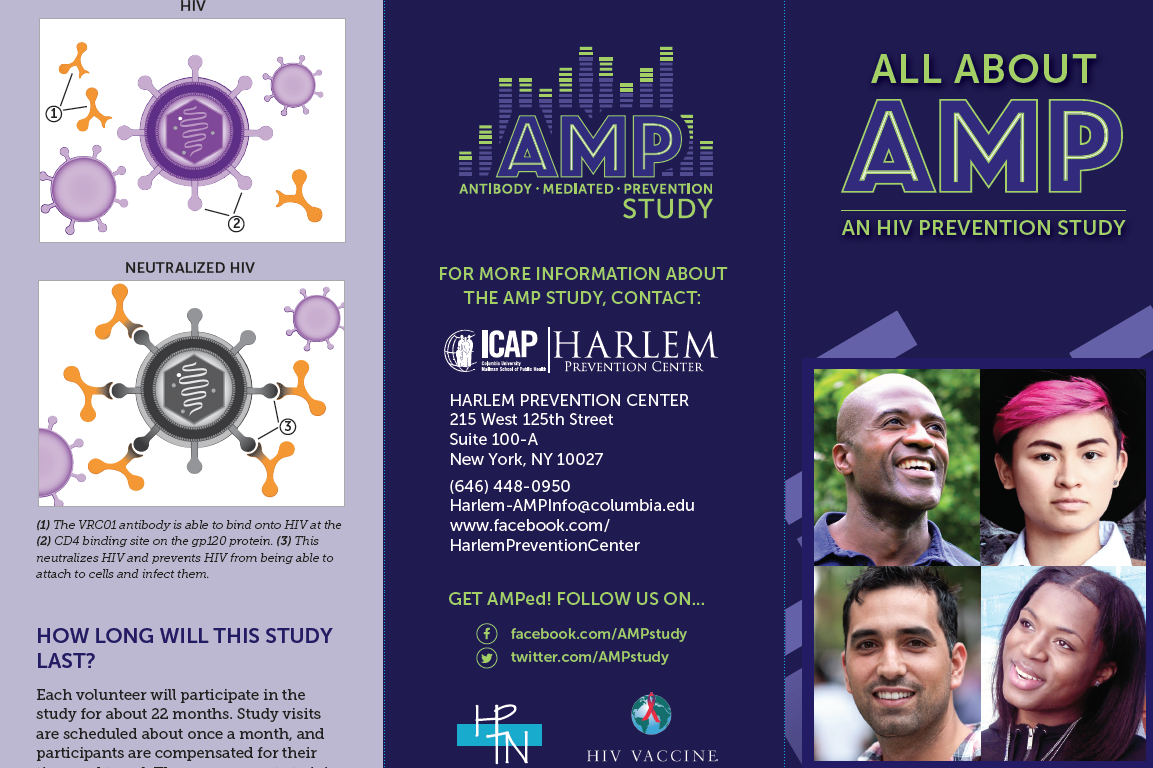Sponsored by the National Institutes of Health (NIH), the HIV Prevention Trials Network (HPTN) and the HIV Vaccine Trials Network (HVTN) jointly conducted the Antibody Mediated Prevention (AMP) study which tested a new innovation for HIV prevention.
Traditionally, vaccines are used to help the body make their own antibodies to fight against a virus or pathogen. This study, however, skipped that step and directly provided the body with antibodies that would attack HIV. The AMP study was the first of its kind to test whether an antibody can prevent HIV infection. And as it turns out, it can – partly.
The study began in April 2016 and successfully enrolled a total of 4,623 participants. The study was split in two; The first, HVTN 703/HPTN 081, enrolled women vulnerable to HIV infection in Botswana, Kenya, Malawi, Mozambique, South Africa, Tanzania, and Zimbabwe. 98.9% of those participants were Black. The second study, HVTN 704/HPTN 085, enrolled men and transgender people vulnerable to HIV in Brazil, Peru, Switzerland, and the United States. 15.1% of participants were Black, 31.6% were white, and 57.1% were Latinx.
The antibody, named VRC01, is a broadly neutralizing antibody that stops HIV from binding to human T-cells. It does so by attaching to the virus’ binding site which then prevents the virus from infecting the T-cells. The AMP study results showed that the antibody was 75% effective at safely preventing the body from acquiring certain strains of HIV. While it was not able to prevent HIV overall, it is an amazing step in the right direction to prevent new HIV infections.
It is likely that more than one antibody will need to be used to effectively achieve overall HIV prevention. This study was critical in providing insight on which combinations of antibodies can provide broader and more effective protection of HIV when compared to one antibody.
ICAP’s Harlem Prevention Center (HPC) was one of several research sites to conduct the AMP study in the United States. The HPC site started screening and enrollment in May 2016 and had a total of 68 participants. Of the 68 randomized participants at the site, 87% self-reported as men who have sex with men (MSM) and 13% self- identified as “Other”. For race and ethnicity, 15% were white; 59% were Black; 3% were Asian; and 23% did not report/or reported more than one race or ethnicity. Additionally, 22% reported being Hispanic, 78% reported being Non-Hispanic, and the median age of participants was 27.8 years.
AMP is one of the many clinical studies HPC has conducted over the years and the success of this study is a small manifestation HPC’s mission; to bring the world closer to ending HIV, one step at a time. While many advancements in HIV prevention have been accomplished, such as Pre-exposure Prophylaxis (PrEP), Post-exposure Proyphylaxis (PEP), the need for a safe and effective HIV vaccine and other HIV prevention methods as urgent as ever.
About Harlem Prevention Center
The Harlem Prevention Center’s (HPC) mission is to advance research in HIV prevention, care, and treatment, with a focus on underserved communities in New York City. The site remains well suited to address the US National HIV/AIDS Strategy goals of reducing the number of persons who become infected with HIV and reducing HIV-related health disparities. HPC’s strength remains in the populations it reaches, the communities it serves, strong community relationships, staff expertise, site location, and recruitment and retention achievements. For the latest updates on HPC’s work, visit: https://www.facebook.com/HPCHarlem/
About ICAP
A major global health organization that has been improving public health in countries around the world for nearly two decades, ICAP works to transform the health of populations through innovation, science, and global collaboration. Based at Columbia Mailman School of Public Health, ICAP has projects in more than 30 countries, working side-by-side with ministries of health and local governmental, non-governmental, academic, and community partners to confront some of the world’s greatest health challenges. Through evidence-informed programs, meaningful research, tailored technical assistance, effective training and education programs, and rigorous surveillance to measure and evaluate the impact of public health interventions, ICAP aims to realize a global vision of healthy people, empowered communities, and thriving societies.








